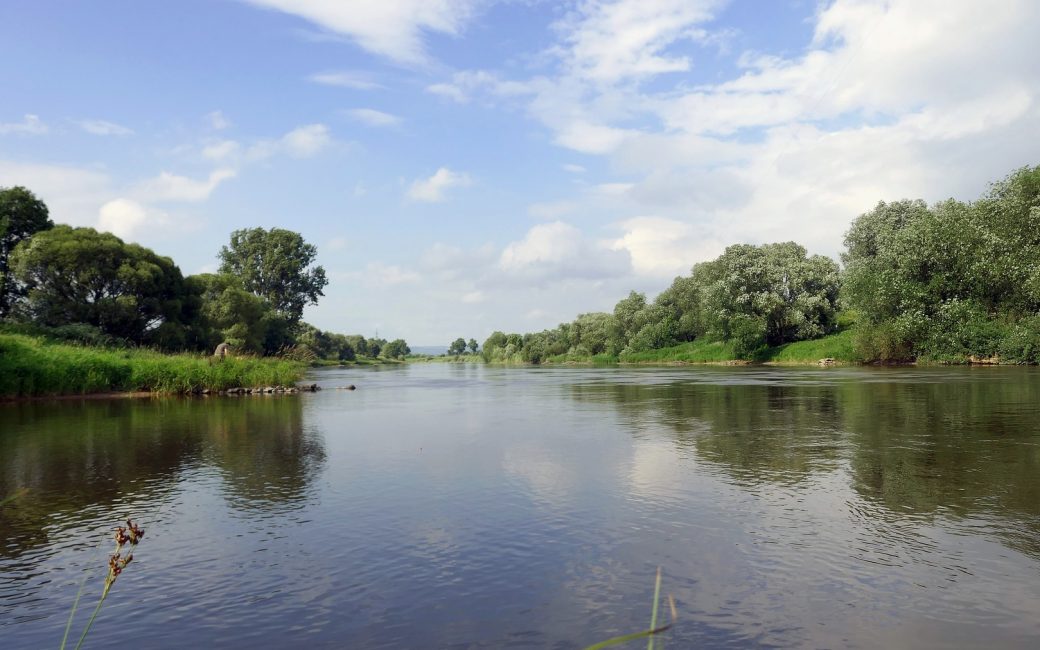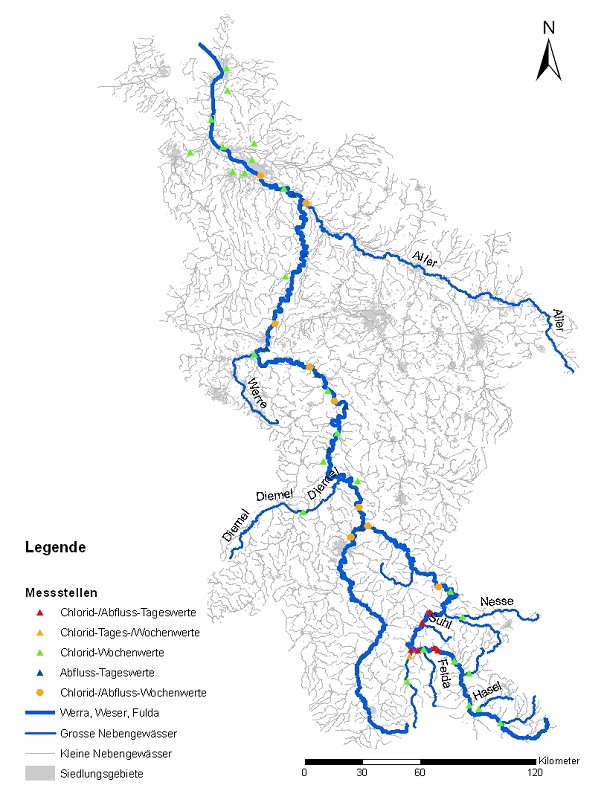General information
Client: K+S KALI GmbH, River Basin Commission Weser, Federal State of Hesse
Location: Germany
Project duration: 01/2010 - ongoing
Key characteristics: Catchment area: 65000 km², River length: > 1000 km, Rivers evaluated: Werra, Weser, Leine, Aller and part of the River Elbe
Project description
The objective of the project was to evaluate the impact of wastewater discharges from salt and potash mining on water quality and ecology and to find operating scheme in order to minimize impacts on water quality. The assessment cuts across different sectors like water, mining, navigation, transport, recreation, urban development and socio-economic development. The latter strongly depends on the mining industry and their potential to create jobs. Project goals were:
- minimize the risk of adverse environmental impacts by high salt concentrations
- minimize salt deposition in the floodplains during flood events
- meet the water quality development objectives of the EU Water Framework Directive
- ensure the continuation of potash mining as the most important employer in this region of Germany providing more than 30000 jobs directly or indirectly
- find workable and practicable solutions to manage and monitor the wastewater discharge.
Services
- Establishment of a comprehensive river basin model, based on the software package Talsim-NG, including
- hydrological modelling of all sub-basins
- water quality modelling
- river modelling of the whole river network
- implementation of operational schemes for the wastewater management
- scenario management for different user groups
The main challenge was to find a solution which represents the best compromise the stakeholders (7 ministries, regulating authorities and the mining company) can agree on which balances environmental requirements with viable mining production.
Skills
- Data management
- Integrated hydrological modelling
- Hydrological and water quality assessments
- Scenario management
- Communication of technically difficult subjects to different stakeholders

